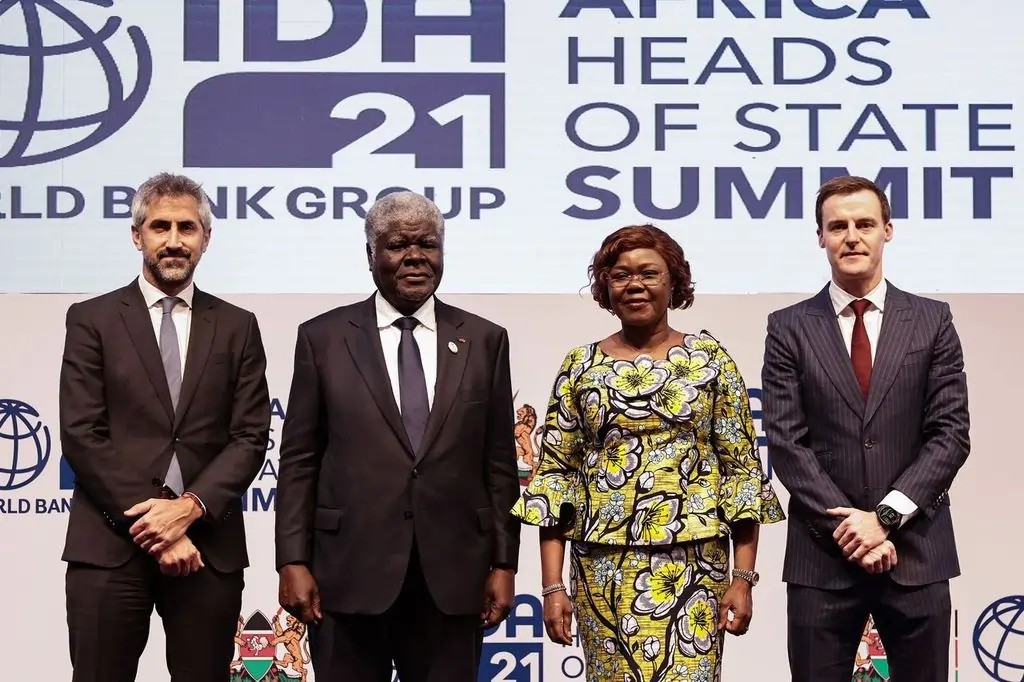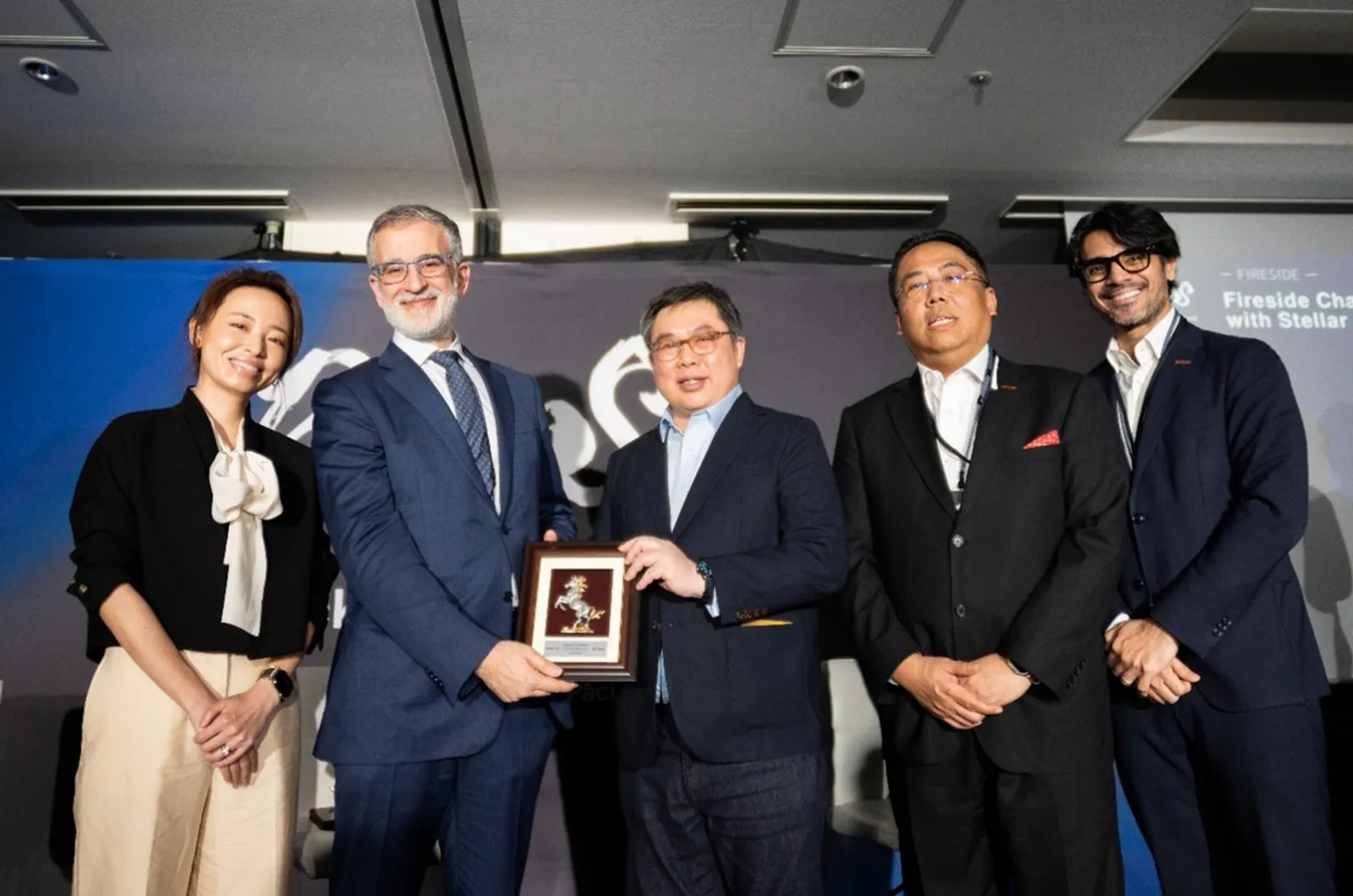In a report that underscores the urgent need for action, Bridgewater Associates, the world’s largest hedge fund, has called for a significant increase in investment in sub-Saharan Africa to prevent the region from falling behind in the global economic race. The hedge fund’s analysis suggests that without substantial and sustained investment, the region’s potential to capitalize on its demographic advantages could be severely compromised.
A Call to Action: Doubling Investment to 30% of GDP
Bridgewater’s new report, revealed exclusively to Semafor Africa, emphasizes the critical need for sub-Saharan Africa to double its current level of investment to at least 30% of its gross domestic product (GDP). This increase is essential to set the region on a steeper development trajectory that can match or surpass global benchmarks. The hedge fund estimates that Africa’s long-term economic growth rate could reach a maximum of 5.5%, but only if there is a concerted effort to enhance output per worker and effectively manage the growing working-age population.
The report highlights that sub-Saharan Africa is on the cusp of a demographic shift, with a working-age population that will soon surpass that of China. This presents a unique opportunity for economic growth, provided that the necessary investments are made in infrastructure, education, and governance. However, the current levels of investment are insufficient to unlock this potential. The report warns that without a significant increase in investment, the region may struggle to achieve the growth levels needed to address existing economic imbalances and poverty.
Dispelling the High-Risk Perception: Strengthening Institutions and Human Capital
One of the major barriers to increasing investment in Africa is the global perception of high risk associated with the region. Bridgewater’s report stresses the importance of addressing these perceptions by strengthening weak institutions, enhancing human capital, and harmonizing policies across different countries to create a more attractive investment climate. The report advocates for a more coordinated approach to policy-making that reduces fragmentation and presents a unified market opportunity to global investors.
Bridgewater’s CEO, Nir Bar Dea, has been vocal about the importance of the developing world in shaping the future global economy. In a recent speech, he highlighted the significant role that regions like sub-Saharan Africa will play in the long term, stressing that understanding these regions is crucial for anyone looking to comprehend global economic trends.
“The big regions in the world, the developing world… massively matter in the long term to anybody trying to understand where the world is headed in any serious way,” Bar Dea remarked.
The Role of Development Banks: Scaling Up Investment
The report also recommends that development banks, particularly the World Bank’s International Development Association (IDA), should play a more prominent role in driving this investment. The IDA, which provides grants and low-to-zero interest loans to the world’s poorest countries, has been a critical source of funding for many African nations. Since 2015, Ethiopia and Nigeria have been among the top five IDA borrowers, receiving nearly $35 billion in total. These funds are vital for financing projects that have high social returns but may not be immediately profitable, making them less attractive to private investors.
Bridgewater has entered into a partnership with Global Citizen to support the World Bank’s 21st IDA replenishment, emphasizing the importance of scaling up investments in the world’s poorest countries. The IDA’s most recent replenishment in 2021 raised $93 billion, the largest in its history. However, Bridgewater argues that to meet the needs of sub-Saharan Africa, a much larger pool of funds is necessary—potentially up to $180 billion.
The hedge fund’s call for increased investment aligns with World Bank President Ajay Banga’s vision for the institution. Banga, who took the helm last year, has emphasized the need for the World Bank to focus on long-term investments that can drive sustainable development in Africa. He has advocated for a more targeted approach, prioritizing projects that can make a “quantum difference” in the region’s development trajectory.
“What we’re trying to do, instead of spreading the peanut butter thin and doing everything that everybody wants, is to pick things that will make a quantum difference in a finite time to change the trajectory of what’s going on in Africa,” Banga stated during a private event attended by Bridgewater staff.
Private Sector Engagement: Unlocking Trillions in Investment
While development banks play a crucial role, the report emphasizes that private sector investment is also essential to achieving the necessary scale of funding. Bridgewater argues that the only way to mobilize the trillions of dollars needed is to create conditions where the private sector sees a rational return on investment. This involves not only improving the investment climate but also ensuring that investments are directed towards projects that can generate both social and economic returns.
The report points out that many of the challenges facing sub-Saharan Africa, such as infrastructure deficits and weak institutions, cannot be addressed by public funding alone. Private sector involvement is necessary to fill the gap, but this requires creating an environment where investors are confident in the potential for returns. This includes reducing political risk, enhancing transparency, and providing guarantees or incentives to attract investment.
Challenges and Opposition: Donor Fatigue and Global Conflicts
Despite the urgency of the call for increased investment, the report acknowledges that there are significant challenges to achieving this goal. One of the major obstacles is donor fatigue among traditional donor countries, such as France, Germany, and the UK. These countries are facing increasing constraints on their aid budgets due to conflicts in Europe and the Middle East, which have diverted resources away from development assistance.
The World Bank’s April report highlighted that for the first time this century, half of the world’s 75 poorest countries have seen a widening income gap with the wealthiest economies. This growing inequality underscores the need for a renewed focus on development assistance, particularly in regions like sub-Saharan Africa, where the potential for growth is significant but remains untapped.
The report also points out that many African countries are still grappling with the effects of the COVID-19 pandemic, which has exacerbated existing economic challenges. The pandemic has led to increased debt levels, reduced fiscal space, and heightened vulnerability to external shocks. In this context, the need for increased investment is even more pressing, as it is critical to building resilience and supporting recovery efforts.
The Importance of Policy Coordination: Overcoming Fragmentation
To maximize the impact of increased investment, the report stresses the importance of policy coordination across the region. One of the key challenges facing sub-Saharan Africa is the fragmentation of policies from one country to another, which creates barriers to investment and limits the potential for regional integration. Bridgewater argues that greater harmonization of policies is needed to create a more cohesive and attractive investment environment.
This includes efforts to standardize regulations, reduce trade barriers, and promote regional integration initiatives, such as the African Continental Free Trade Area (AfCFTA). The AfCFTA, which came into force in 2021, aims to create a single market for goods and services across 54 African countries, making it the largest free trade area in the world by number of member states. The successful implementation of the AfCFTA could be a game-changer for the region, providing a platform for increased investment and economic growth.
Looking Ahead: The Future of Investment in Africa
Bridgewater’s report concludes with a call to action for both public and private sector actors to increase their investments in sub-Saharan Africa. The region’s demographic potential, combined with its vast natural resources and growing consumer markets, presents a unique opportunity for economic transformation. However, realizing this potential requires a coordinated and sustained effort to address the challenges that have historically hindered investment.
As global economic conditions continue to evolve, the importance of sub-Saharan Africa in the global economy is likely to increase. The region’s young and growing population, coupled with its abundant natural resources, positions it as a key player in the future global economy. However, without the necessary investments in infrastructure, education, and governance, this potential may remain untapped.
The report suggests that the next decade will be critical for sub-Saharan Africa’s development trajectory. If the region can attract the necessary investment and implement the right policies, it has the potential to achieve sustained economic growth and significantly improve living standards for its population. However, this will require a collective effort from governments, development banks, and private sector investors to create an environment where investment can thrive.
In conclusion, Bridgewater’s advocacy for increased investment in Africa is not just a call for financial resources; it is a call for a comprehensive approach to development that addresses the underlying challenges facing the region. By doubling investment to 30% of GDP, strengthening institutions, and enhancing human capital, sub-Saharan Africa can unlock its full economic potential and contribute to a more balanced and inclusive global economy.
Photo source: Google
By: Montel Kamau
Serrari Financial Analyst
30th August, 2024
Article, Financial and News Disclaimer
The Value of a Financial Advisor
While this article offers valuable insights, it is essential to recognize that personal finance can be highly complex and unique to each individual. A financial advisor provides professional expertise and personalized guidance to help you make well-informed decisions tailored to your specific circumstances and goals.
Beyond offering knowledge, a financial advisor serves as a trusted partner to help you stay disciplined, avoid common pitfalls, and remain focused on your long-term objectives. Their perspective and experience can complement your own efforts, enhancing your financial well-being and ensuring a more confident approach to managing your finances.
Disclaimer: This article is for informational purposes only and does not constitute financial advice. Readers are encouraged to consult a licensed financial advisor to obtain guidance specific to their financial situation.
Article and News Disclaimer
The information provided on www.serrarigroup.com is for general informational purposes only. While we strive to keep the information up to date and accurate, we make no representations or warranties of any kind, express or implied, about the completeness, accuracy, reliability, suitability, or availability with respect to the website or the information, products, services, or related graphics contained on the website for any purpose. Any reliance you place on such information is therefore strictly at your own risk.
www.serrarigroup.com is not responsible for any errors or omissions, or for the results obtained from the use of this information. All information on the website is provided on an as-is basis, with no guarantee of completeness, accuracy, timeliness, or of the results obtained from the use of this information, and without warranty of any kind, express or implied, including but not limited to warranties of performance, merchantability, and fitness for a particular purpose.
In no event will www.serrarigroup.com be liable to you or anyone else for any decision made or action taken in reliance on the information provided on the website or for any consequential, special, or similar damages, even if advised of the possibility of such damages.
The articles, news, and information presented on www.serrarigroup.com reflect the opinions of the respective authors and contributors and do not necessarily represent the views of the website or its management. Any views or opinions expressed are solely those of the individual authors and do not represent the website's views or opinions as a whole.
The content on www.serrarigroup.com may include links to external websites, which are provided for convenience and informational purposes only. We have no control over the nature, content, and availability of those sites. The inclusion of any links does not necessarily imply a recommendation or endorsement of the views expressed within them.
Every effort is made to keep the website up and running smoothly. However, www.serrarigroup.com takes no responsibility for, and will not be liable for, the website being temporarily unavailable due to technical issues beyond our control.
Please note that laws, regulations, and information can change rapidly, and we advise you to conduct further research and seek professional advice when necessary.
By using www.serrarigroup.com, you agree to this disclaimer and its terms. If you do not agree with this disclaimer, please do not use the website.
www.serrarigroup.com, reserves the right to update, modify, or remove any part of this disclaimer without prior notice. It is your responsibility to review this disclaimer periodically for changes.
Serrari Group 2025
















